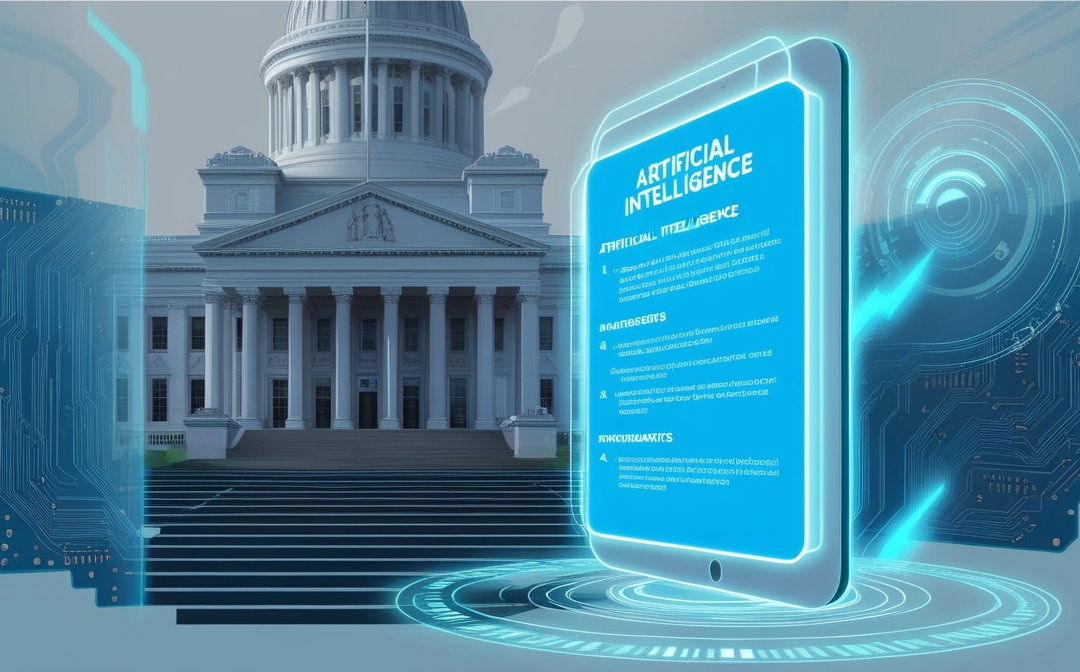In light of recent guidance from the U.S. Department of Justice (DOJ), companies, including small and medium-sized businesses (SMBs), are expected to take proactive steps to manage and minimize risks associated with AI implementation. This shift is significant: it signals the DOJ’s commitment to monitoring and addressing AI misuse, particularly concerning misconduct or unintended harm arising from AI-driven decisions.
As an AI speaker and author, I am drawing insights from recent Bloomberg Law and Akerman articles, here’s what SMBs need to know about safeguarding their business against AI blunders.
- DOJ’s Expectations on AI Governance
The DOJ’s new guidance is a proactive stance that urges businesses to adopt a preventative approach to potential AI-related misconduct. The core message is clear: companies must comply with existing regulations and actively monitor and adjust their AI applications to prevent errors and ethical breaches. The DOJ emphasizes that AI models should not be implemented mindlessly, without safeguards or ongoing oversight, as this can lead to severe consequences—from legal ramifications to reputational damage. However, with robust AI oversight, SMBs can also unlock the potential benefits of AI, such as improved efficiency and customer satisfaction.
- The Need for Robust AI Policies
Many SMBs are venturing into the AI landscape for the first time, often without comprehensive policies governing its use. However, the DOJ’s stance underscores that even smaller businesses are not exempt from responsibility. By establishing clear, well-documented policies on AI deployment and use, SMBs can take control of their AI strategies. This includes understanding data privacy laws, ensuring data sources are ethically sourced, and conducting regular audits on how AI systems impact business processes and decisions.
- Building Transparency into AI Systems
One of the DOJ’s key concerns is that AI should operate in a manner that promotes transparency. For SMBs, this means implementing systems where AI-driven decisions can be reviewed and understood. This approach not only helps companies detect potential biases or inaccuracies but also reassures stakeholders that AI systems are being used responsibly. By regularly assessing the impact of AI on their operations, SMBs can build confidence in their AI strategies.
- Training and Accountability Measures
The DOJ’s guidelines also encourage companies to make accountability a foundational element of their AI strategy. For SMBs, this can be achieved by appointing specific individuals or teams to oversee AI practices and training employees on AI’s ethical and operational implications. Regularly revisiting these policies and keeping employees informed ensures everyone understands their role in ethical AI use, making them feel valued and integral to the process.
- Ongoing Risk Assessment and Adjustment
Given AI’s evolving nature, a “set it and forget it” approach is highly risky. SMBs should conduct periodic risk assessments on their AI systems, evaluating for unintended biases, misuse, or operational flaws. This is especially pertinent when AI systems are updated or new applications are introduced. Risk assessments should examine AI’s legal, ethical, and operational facets to identify potential vulnerabilities early, making SMBs feel cautious and vigilant in their AI implementation.
Practical Steps for SMBs
Here are a few practical, actionable steps that SMBs can adopt to stay aligned with the DOJ’s expectations:
– AI Policy Development: Draft AI-specific policies that address data usage, decision-making processes, and regulatory compliance.
– Designated AI Oversight: Appoint a team or individual responsible for AI oversight with the necessary training and resources.
– Regular Audits: Schedule audits to review AI decisions, accuracy, and ethical impact.
– Risk Mitigation Training: Provide employees with risk mitigation training, covering how to recognize and report issues related to AI decisions.
– Transparent Reporting: Establish transparent mechanisms to report AI decisions and outcomes, which is especially valuable when defending AI use in regulatory investigations.
Final Thoughts
For SMBs, the DOJ’s guidance on AI is a wake-up call: AI adoption is no longer a simple matter of technological progress but a business strategy that must be ethically and strategically managed. A proactive stance on these expectations safeguards companies from potential legal repercussions and builds trust among customers, investors, and stakeholders.
—
Questions for Further Thought:
- What are the key ethical dilemmas your SMB might face as it adopts AI?
- How can SMBs balance innovation with maintaining AI transparency?
- What are the unique challenges SMBs face compared to large corporations when implementing AI ethics policies?
- How can SMBs leverage AI to enhance transparency and build customer trust?
These are essential considerations for SMBs seeking to navigate AI with integrity and foresight in today’s increasingly regulated landscape.







